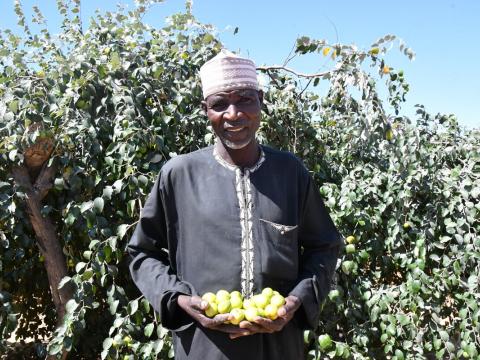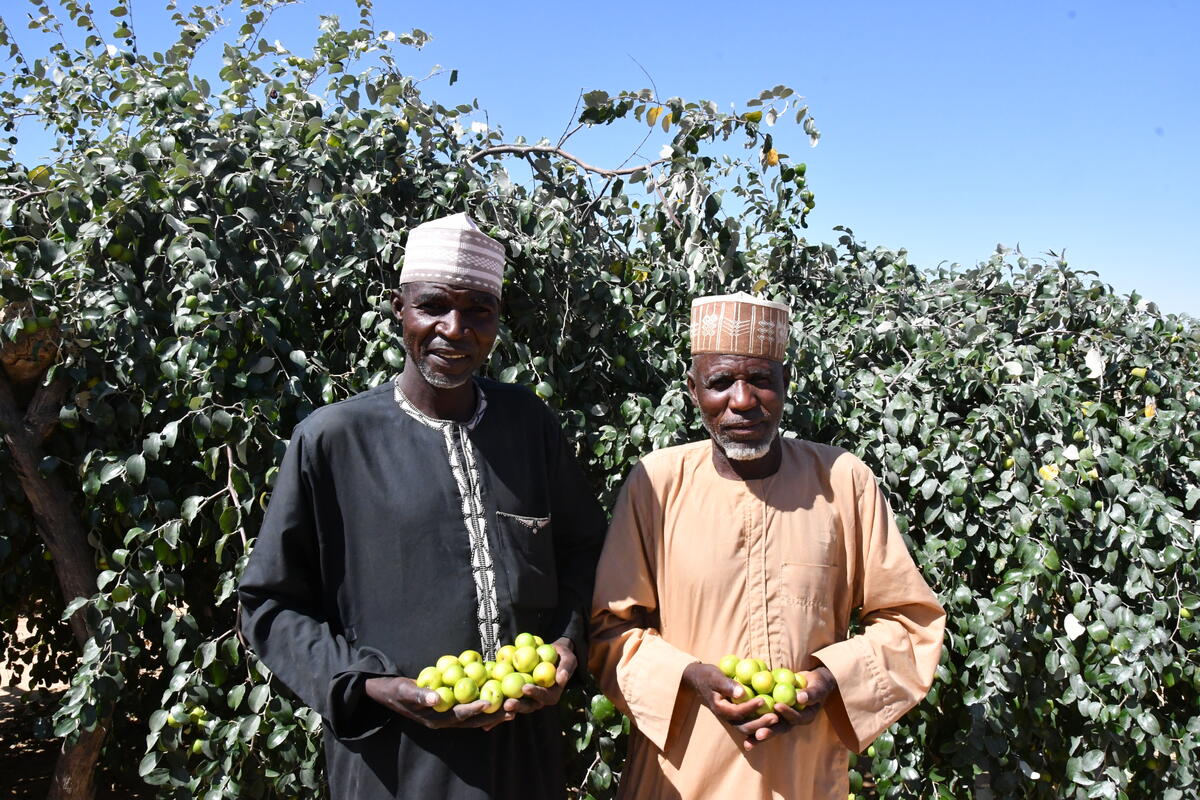Growing Sahelian apples helped Abdoulsalam stay close to his family

By Ibrahim Samna - Communication Officer Intern for World Vision's Niger Emergency Response
In Niger, 78% of the country population is engaged in crop or livestock agriculture; many in small rural villages operating at subsistence levels. As a solution to both the variability of harvests in the dry Sahel and a way to earn money, many Nigerien men often seek alternate and seasonal sources of income abroad. As such, each year during the dry season following harvest, men from many rural communities of Niger travel to look for temporary work abroad. Unfortunately, some of them experience hardship beyond expectations, and end up worse off than when they left their villages.
For Abdoulsalam Elhadji Issa (45), a farmer and father of nine children from Sabon Machi village (Maradi region), leaving his village is no longer an option. "In the past, my main challenge was to provide food, health and education needs to my family”, he says. “[This is] Because I used to farm using traditional techniques and rely fully on the seasonal rainfall for my crops to grow. Unfortunately, I was among many who soon realised that the negative effects of climate change, such as the decrease of cultivated land, would reduce drastically my chances of looking after my family”.
In an attempt to save his loved ones from hunger, Abdoulsalam like many men resorted to leaving their village, to look for temporary work abroad. “I migrated to several neighbouring countries (Nigeria, Libya and Algeria) for several years”, he says. “After spending several difficult years abroad, I decided to return to my country where I had the chance to participate in a training on Sahelian apple production, organised by World Vision’s Integrated Resilience Project II and financed by the World Food Programme (WFP). I am very grateful for receiving the training, which allowed me to meet my family’s needs”.
The 45-year-old farmer from Sabon Machi was happy to illustrate to me the positive outcomes of the training that he received. “At the beginning of the training, we were explained to that the training will create economic development opportunities for us, but I must confess that I wasn’t sure how. After months of practicing the technique of growing Sahelian apples covered during the training, I started to see the fruits of my hard work, because I was finally able to look after my family’s needs”.

Abdoulsalam explains that after harvest, he can sell one bag of Sahelian apples for an amount between $3.68 USD and $4.60 USD depending on the period. “With the proceeds from sales, I manage to buy food for my family, pay for medicine when my children get sick, pay for my children’s education needs, and even save a little money!”, he says.
His positive experience affected him to the extent that he now believes that leaving the country should no longer be an option for the young generation of men from Sabon Machi. Abdoulsalam now advocates for young people to stay in the village. “I advise our young [people] to stay in the country and organise themselves into economic interest groups, because the opportunities for development exist and partners like World Vision are ready to support such initiatives”, he concludes.

To date, Maradi's Integrated Resilience Project II within World Vision’s emergency response programme has transformed the lives of 30 farmers from Sabon Machi village and reached 1,837 households in the commune. The project has also contributed to a significant reduction of exoduses of men for economic reasons.